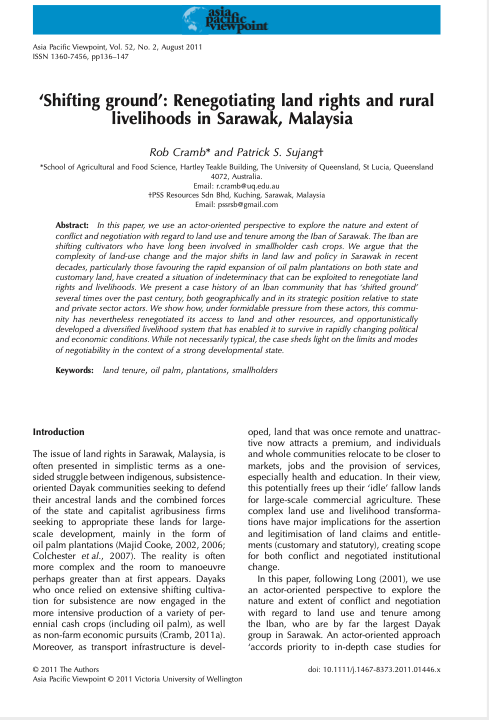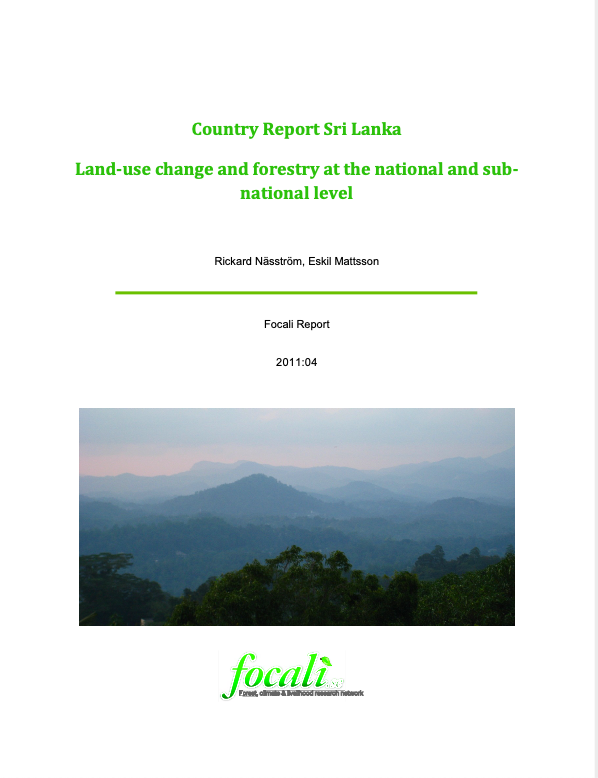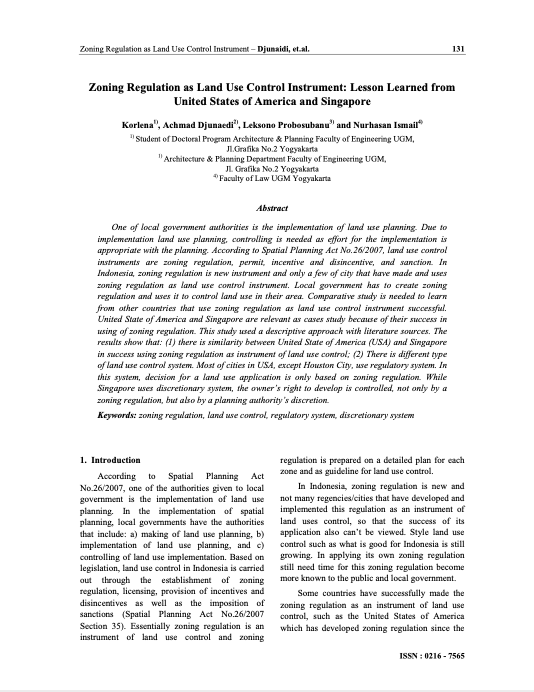‘Shifting ground’
In this paper, we use an actor-oriented perspective to explore the nature and extent of conflict and negotiation with regard to land use and tenure among the Iban of Sarawak. The Iban are shifting cultivators who have long been involved in smallholder cash crops.









